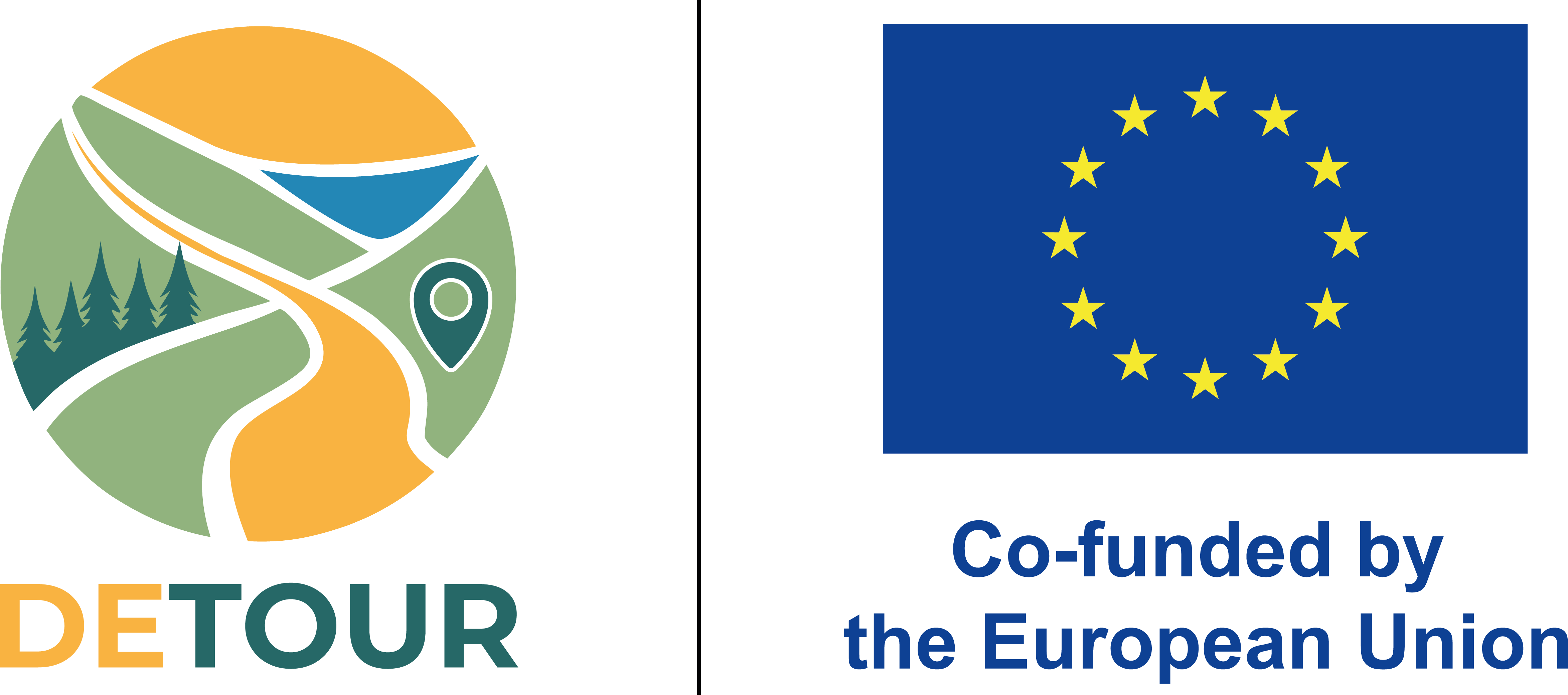About DETOUR

DETOUR – Developing Resilient Tourism Ecosystems along Mediterranean Routes is a project co-funded by the European Union under the SMP COSME programme, with a total budget of €2 million and a duration of 36 months (1 November 2024 – 31 October 2027).
DETOUR aims to foster sustainable, inclusive, and resilient tourism by supporting the development of tourism ecosystems along rural, cultural, and historical routes in the Mediterranean region. The project specifically targets small and medium-sized enterprises (SMEs) and local stakeholders involved in slow and experiential tourism, helping them access funding opportunities, adopt digital tools, and strengthen their capacity to innovate, grow, and compete on a European and global scale.
Project Phases

The DETOUR project is structured in several key phases aimed at promoting sustainable, cultural, and cross-border tourism, contributing at the same time to building local capacity, supporting innovation
1. Research
Collection of data and analysis of tourism trends, local assets, and needs across pilot regions to inform all project actions.
2. Capacity Building for key tourism stakeholders
Training for key tourism stakeholders and cross-sectoral experts and professionals in project countries who will act as multipliers via knowledge-sharing activities.
🔗 Learn more about Train the Trainers programme
3. Training for SMEs
Tailored training and mentoring programmes for small and medium tourism enterprises along the selected walking routes to strengthen skills in sustainable tourism, digital tools, and tourism offer.
🔗 Explore SME Training Activities
4. Mini-Grants for Innovative Projects
Financial support for small-scale, innovative tourism projects developed by partnerships of SMEs along the selected walking routes in project countries to increase the level of services, enhance their attractiveness and sustainability.
5. Communication and Dissemination
Wide-reaching communication campaigns, participation in tourism fairs, collaborations with travel bloggers, and educational trips to promote project results and pilot destinations to a broader audience.
